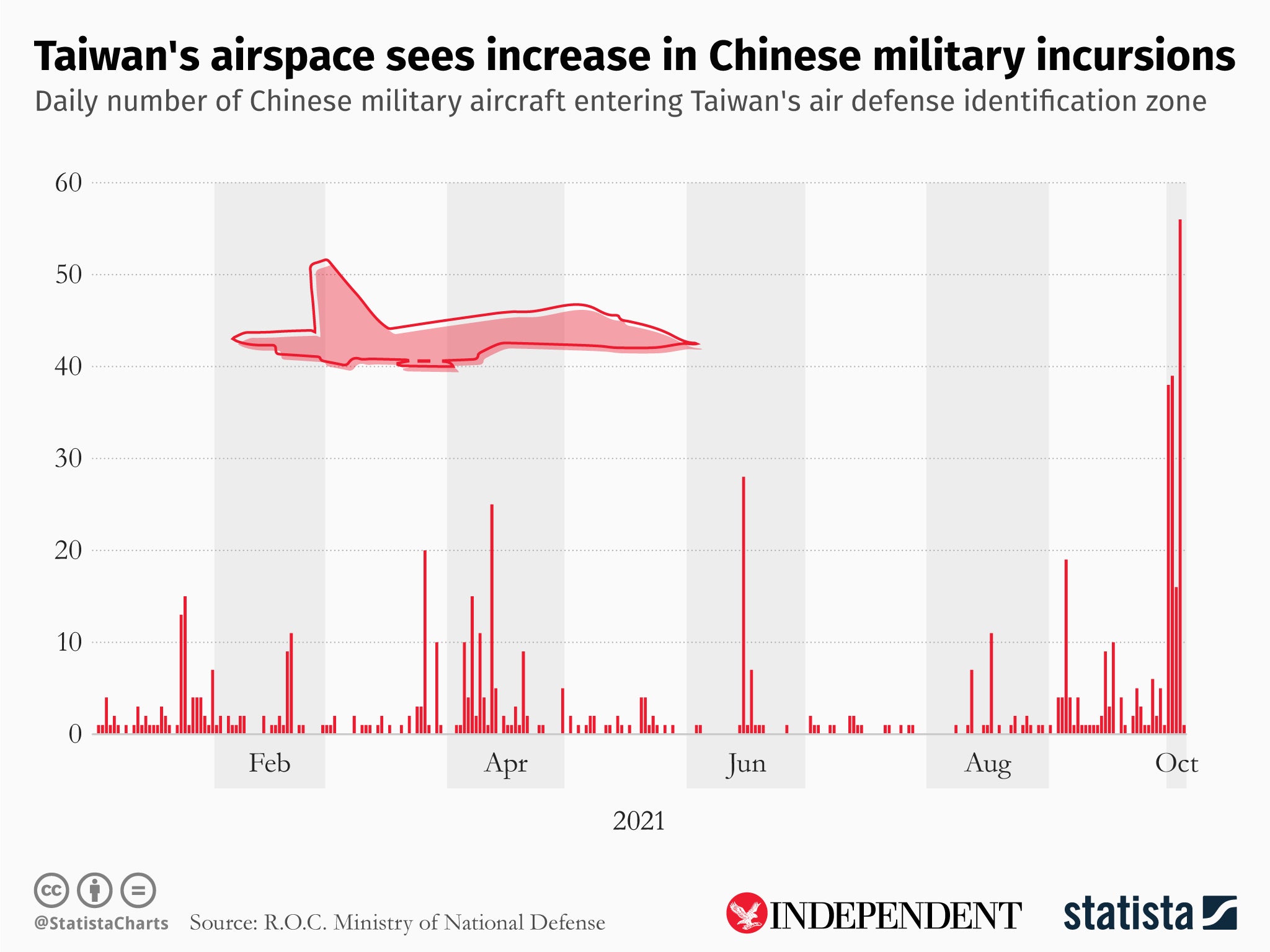Taiwan does not seek war but ‘will do whatever it takes to defend freedom’, says president
Heightened tensions between China and Taiwan could have ‘devastating effect’ on international security and global economy, she warns
Days after Taiwan raised the alarm that China could launch a “full scale” invasion by 2025, its president has said it does not want war but warned that the island is prepared to defend itself if necessary.
“Taiwan does not seek military confrontation,” president Tsai Ing-wen said at a security forum in Taipei on Friday. “It hopes for a peaceful, stable, predictable and mutually-beneficial coexistence with its neighbours. But Taiwan will also do whatever it takes to defend its freedom and democratic way of life.”
She reiterated that the island’s heightened tensions with China could have a “devastating effect” on international security and the global economy if not handled carefully. In an essay published on Tuesday, Ms Tsai had warned of “catastrophic consequences” in Asia should the island fall to China.
Her concerns came as China has stepped up its military intimidation of Taiwan. Though Taiwan claims to be a self-ruling democracy, Beijing views the island as a breakaway province.
Last week, over a span of four days, China sent 148 warplanes into Taiwan’s air defence zone in what is described as the worst escalations between the two neighbours in four decades. The recent developments have sparked alarm from leaders around the world. The US, Australia and Japan have urged China to commit to peaceful resolution.

“Taiwan will work together with other regional countries to ensure stability,” Ms Tsai said while seeking support from other countries amid the standoff with China.
She added: “Taiwan is fully committed to collaborating with regional players to prevent armed conflict in the East China, South China Seas and in the Taiwan Strait.”
Despite the tensions with China, Taiwan is this week hosting a delegation from France and former Australian prime minister Tony Abbott, who visited the nation in a personal capacity.
Alain Richard, a former defence minister of France and head of the French delegation, referred to Taiwan as a country even as the Chinese Embassy in Paris warned against the visit, saying it would damage bilateral relations.
Mr Richard said Taiwan’s de facto embassy in Paris has been doing “a very good job in representing your country”.
Mr Abbott, speaking from the same forum as Ms Tsai, denounced China for its aggressive show of force towards Taiwan as well as Australia. “Its relative power might have peaked with its population aging, its economy slowing and its finances creaking. It is quite possible that Beijing could lash out disastrously quite soon,” he said.
He added that he did not believe the US could sit by and watch China “swallow up” Taiwan.
Meanwhile, US officials have revealed that a group of two dozen special operations soldiers and US Marines has been training with Taiwanese forces “for at least a year”, according to The Wall Street Journal.
This has prompted the Chinese foreign ministry to issue a statement saying China will “take all necessary steps to protect its sovereignty and territorial integrity”.
Join our commenting forum
Join thought-provoking conversations, follow other Independent readers and see their replies
Comments
Bookmark popover
Removed from bookmarks